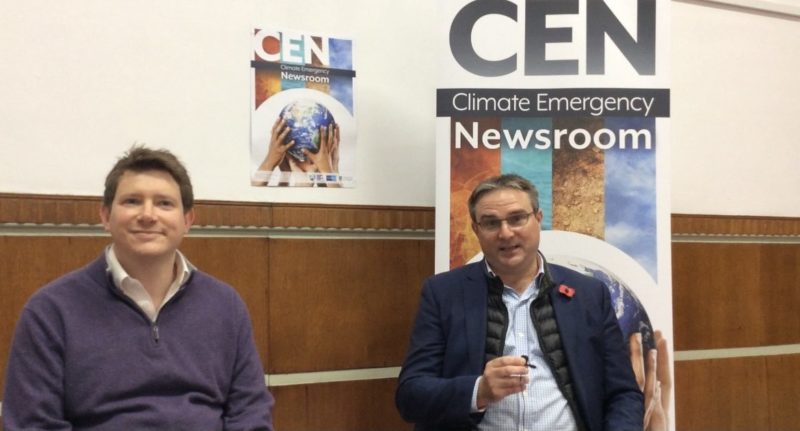Decarbonising Industries – ft. Osborne Clarke legal practice
By Annabelle Coogans and Lisa Ashmore

In honour of COP26, we decided to find out what role industries play in decreasing carbon emissions. By speaking to James Watson and Alex Underwood, representatives from Osborne Clarke, we were informed about their ongoing projects in relation to their contribution to helping the climate crisis. James Watson is a partner at Osborne Clarke and is also head of their Decarbonisation Strategy.
So What Is Decarbonisation?
According to Drax.com, “decarbonisation is the term used for the process of removing or reducing the carbon dioxide (CO2) output of a country’s economy. This is usually done by decreasing the amount of CO2 emitted across the active industries within that economy.” In most sectors, such as transport, a massive amount of fossil fuels is consumed, producing enormous amounts of carbon dioxide, which acts as greenhouse gases: trapping heat and overall contributing hugely to global warming.
So, to learn more about what industries are doing to decrease their carbon emissions, we decided to speak to an expert James Watson, Head of Decarbonisation, and Associate Director, Alex Underwood at Osborne Clarke.
We first asked, “What are lawyers’ roles at COP26?”
James stated that the lawyers at COP26 are basically responsible for all the legal work behind the agreements being made by governments such as drafting texts being negotiated by the governments in order to push the Paris Agreement (which is a legal agreement) to the next level. This is what the Glasgow agreement will hopefully build on from – and also making sure the law is being upheld in the agreements. In terms of decarbonising industries, they’re in charge of making sure carbon emissions from companies are being reduced and documenting this, and terms of agreements are being accurately followed. Overall, the main role of lawyers in COP26 is to make sure governments are committed to follow through with agreements being made such as to reduce their carbon footprint.
We asked: ”Are there any successful projects you are involved in relating to the reduction of carbon output?”
They explained to us they are working with several companies, one being Loreal Paris. The products that contain less carbon to produce are now being made less expensive so that consumers are now more likely to buy this. This means they are more environmentally friendly and less carbon is emitted. This is called the ‘polluters pay’ principle. “The ‘polluter pays’ principle is the commonly accepted practice that those who produce pollution should bear the costs of managing it to prevent damage to human health or the environment.”
Young People
We wanted know what Watson and Underwood’s message to the young people in South Lanarkshire is – and they said it’s so important to get involved! Any small contributions to helping climate change can make the world of difference, COP26 can be an extremely historic event as change is happening now and it’s especially inspiring as we can be the first generation to actually see the changes and improvements in our lifetime. It’s our time to get involved and make a difference.
Sources


